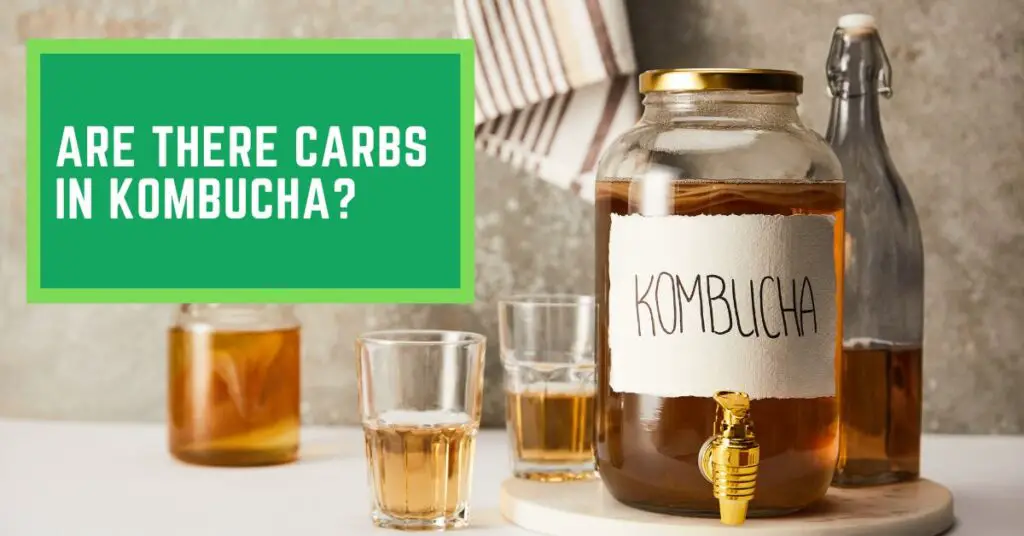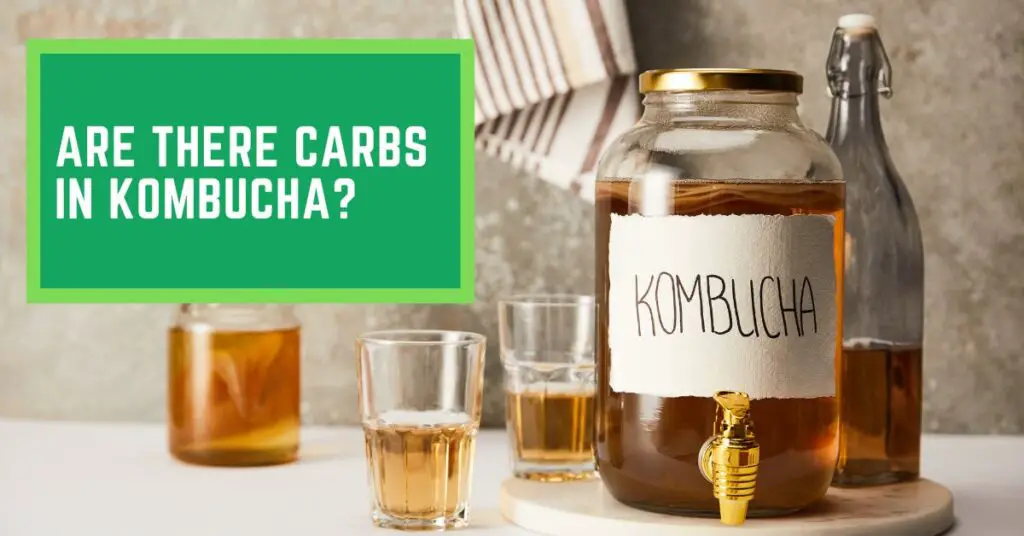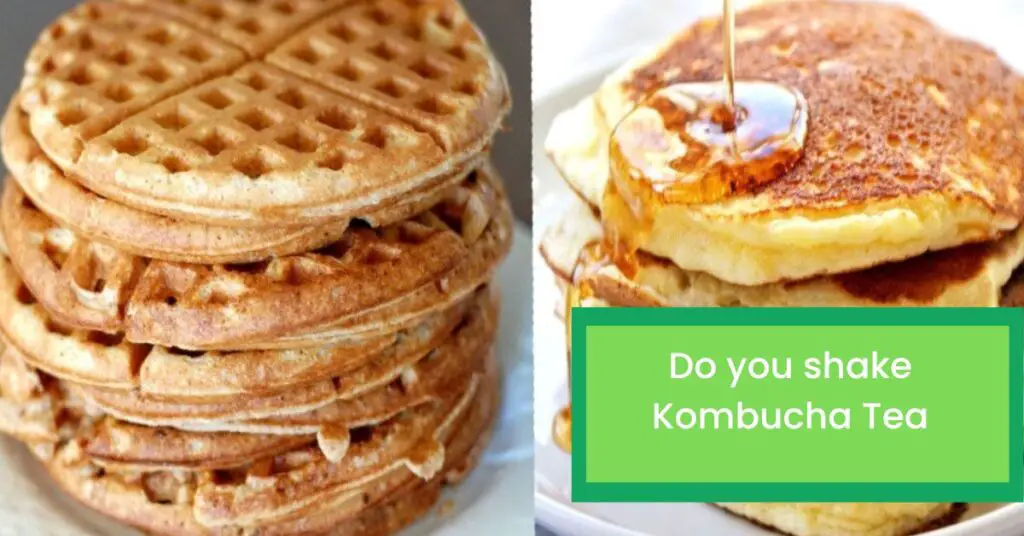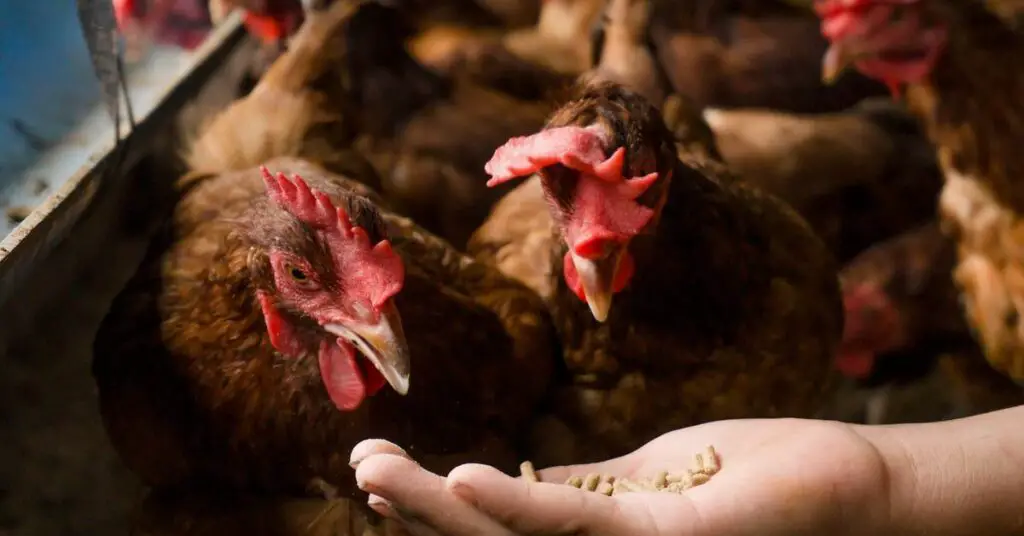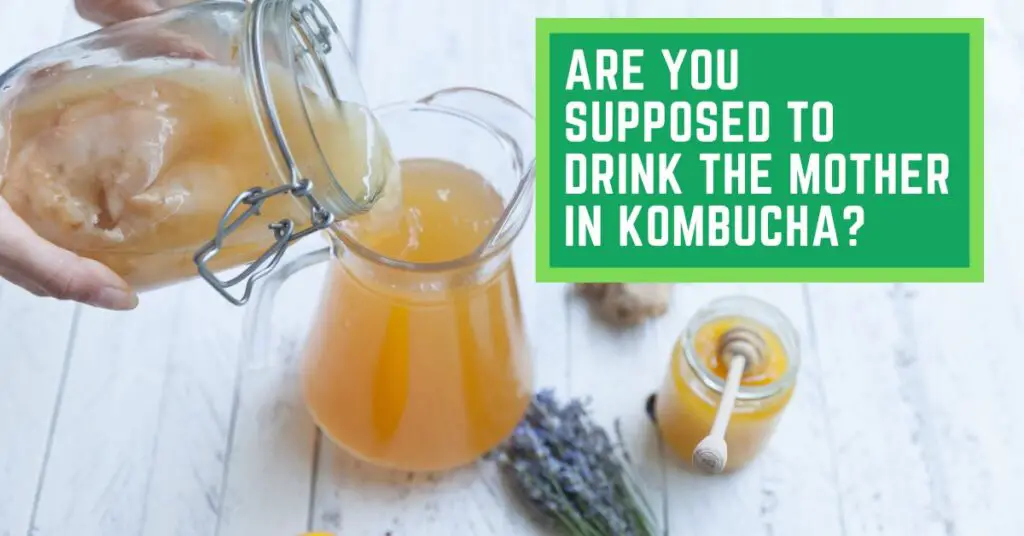Kombucha is a fermented beverage made from sweetened tea. It’s rich in probiotics and has numerous health benefits. But many people are concerned about its sugar and carb content. Here’s what you need to know about the carbs in kombucha.
There are trace amounts of carbs in kombucha. The amount of carbs in kombucha varies depending on how long it’s been fermented and how much sugar is left in the tea.
In this article, we’ll discuss the carbs in kombucha and whether or not it’s a good choice for people.
What is Kombucha?
Kombucha is a sweetened tea that’s been fermented. It’s usually made with black or green tea, but you can also use herbal teas. The tea is combined with sugar, water, and a type of bacteria called a SCOBY.
The SCOBY ferments the sugar in the tea, which produces carbon dioxide and alcohol. The kombucha is then left to ferment for 1–4 weeks. This fermentation process gives kombucha its distinct taste and probiotic properties.
What Are The Health Benefits of Drinking Kombucha?
Kombucha is made by adding a colony of bacteria and yeast to sweetened black or green tea. This fermentation process produces probiotics, which are beneficial bacteria that help improve gut health.
There are many potential health benefits of drinking kombucha, including boosting immunity, improving digestion, and helping to detoxify the body. Kombucha is also a good source of antioxidants and has anti-inflammatory properties.
So, drinking this fermented tea may be a good way to promote overall health and well-being.
Are There Carbs in Kombucha?
It’s a fair question to ask, especially given the recent popularity of this fermented tea. So let’s take a closer look at kombucha and its carb content.
Kombucha is made by fermenting sweetened tea with a culture of bacteria and yeast. This fermentation process creates carbonation and gives kombucha its slightly acidic, vinegary taste. Kombucha contains vitamins, minerals, and enzymes that may offer health benefits.
As for carbs, kombucha generally has about 3 grams of carbohydrates per cup (8 ounces). However, this can vary depending on the recipe and ingredients used. For example, adding fruit or other sweeteners will increase the carb content.
So if you’re watching your carb intake, kombucha is a good choice. And if you’re looking for a refreshing, slightly tart beverage, kombucha is worth trying!
Is it Safe to Drink Kombucha if You’re on a Low-Carb Diet?
It’s a common question that people ask when they’re trying to figure out which foods are safe to eat on a low-carb diet. And it’s a valid question after all, kombucha is a fermented drink made with sugar and yeast.
So, is it safe to drink kombucha if you’re on a low-carb diet?
The short answer is yes, kombucha is safe to drink on a low-carb diet. In fact, it can actually be beneficial.
Here’s why:
The fermentation process that kombucha goes through breaks down the sugar into simpler carbohydrates, like glucose and fructose. This means that there is very little sugar left in kombucha by the time it’s bottled and ready to drink.
In addition, the probiotics in kombucha can help improve gut health, which is important for people on a low-carb diet. A healthy gut means better absorption of nutrients and a reduced risk of gastrointestinal issues.
What if You Overdose on Kombucha?
Kombucha is a fermented tea that has become increasingly popular in recent years. Some people believe that it has health benefits, including aiding digestion and boosting immunity. However, there is no scientific evidence to support these claims.
While kombucha is generally safe to drink, it is possible to overdose on it. Symptoms of a kombucha overdose include nausea, vomiting, and diarrhea. In severe cases, an overdose can lead to liver damage.
If you think you or someone you know has overdosed on kombucha, it is important to seek medical help. Kombucha overdoses are rare, but they can impact your health.
Is Kombucha Good For The Keto Diet?
The keto diet is all about reducing your carb intake and increasing your fat intake. This can lead to some pretty impressive weight loss results. But, as you may be wondering, can you still enjoy kombucha while following the keto diet?
Well, the good news is that kombucha is actually a great drink to have on the keto diet. Kombucha is a fermented tea that is low in sugar and carbs, but high in healthy probiotics. This makes it a perfect drink for those on the keto diet.
In addition, kombucha can help you stick to your diet by curbing your sweet cravings. So, if you are looking for a delicious and healthy drink to enjoy on the keto diet, kombucha is a great option.
How Many Carbs Can You Have on Keto?
If you’re following a ketogenic diet, you may be wondering how many carbs you can have while staying in ketosis.
The answer depends on a few factors, including your activity level and the types of foods you eat.
In general, most people on a ketogenic diet consume 50 grams or fewer of carbs per day.
This includes both net carbs (the carbs that your body absorbs after subtracting the fiber) and total carbs (the grams of carbs in a food, including the fiber).
However, some people may be able to consume more carbs and still stay in ketosis. This is because everyone’s bodies are different and handle carbs differently.
If you’re active, have a high fat-to-carb ratio in your diet, or are in the early stages of the ketogenic diet, you may be able to have more carbs without kicking yourself out of ketosis.
To figure out how many carbs you can have while remaining in ketosis, start by tracking your carb intake for a few days.
If you see that you’re consistently staying in ketosis, you can slowly increase your carb intake until you find the amount that works for you.
Can You Make Keto-Friendly Kombucha?
If you’re on the keto diet, you may be wondering if kombucha is a good choice for you.
Kombucha is a fermented tea that’s popular for its probiotic content and health benefits. However, it’s also high in sugar.
The good news is that there are ways to make kombucha keto-friendly. You can either make your own kombucha at home or purchase a low-sugar variety from the store.
When making your own kombucha, you’ll need to be careful not to add too much sugar during the fermentation process. This is because the yeast in kombucha feeds on sugar and produces alcohol as a by-product.
To make a keto-friendly kombucha, you can either use a sugar substitute or limit the amount of time that the kombucha ferments. Store-bought kombuchas are also an option because they typically contain less sugar than homemade varieties.
When choosing a store-bought kombucha, look for one that has less than 5 grams of sugar per serving. You can also check the label to see if it’s sweetened with a keto-friendly sweetener such as stevia or Monk fruit extract.
If you’re looking for a probiotic-rich drink that’s also keto-friendly, kombucha is a great choice. Just be sure to choose a variety that’s low in sugar and check the label to make sure it’s sweetened with a keto-friendly sweetener.
Frequently Asked Questions Related to Crabs And Kombucha
1. Does kombucha raise insulin?
Kombucha is a naturally fermented beverage made from sweetened tea and SCOBY.
Although kombucha contains beneficial probiotics, it’s important to be aware that it also contains sugar and yeast.
Some people believe that kombucha can help regulate insulin levels, but there is no scientific evidence to support this claim.
If you’re concerned about your insulin levels, speak with your healthcare provider.
2. Is kombucha high carb?
No, kombucha is not high carb. In fact, it’s a low-carb drink, with only about 3–4 grams of carbs per serving.
That’s due to the fermentation process, which breaks down the sugars into alcohol and acids. So if you’re looking for a refreshing, low-carb beverage, kombucha is a great option!
3. Is kombucha good for the keto diet?
Yes! Kombucha is a great drink for people following a keto diet. It’s low in sugar and calories, and it contains probiotics, which can aid in digestive health.
Be sure to choose a kombucha that is unsweetened, as some brands add sugar or other sweeteners to their products.
